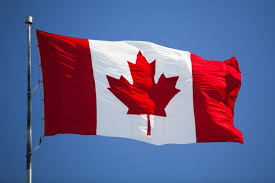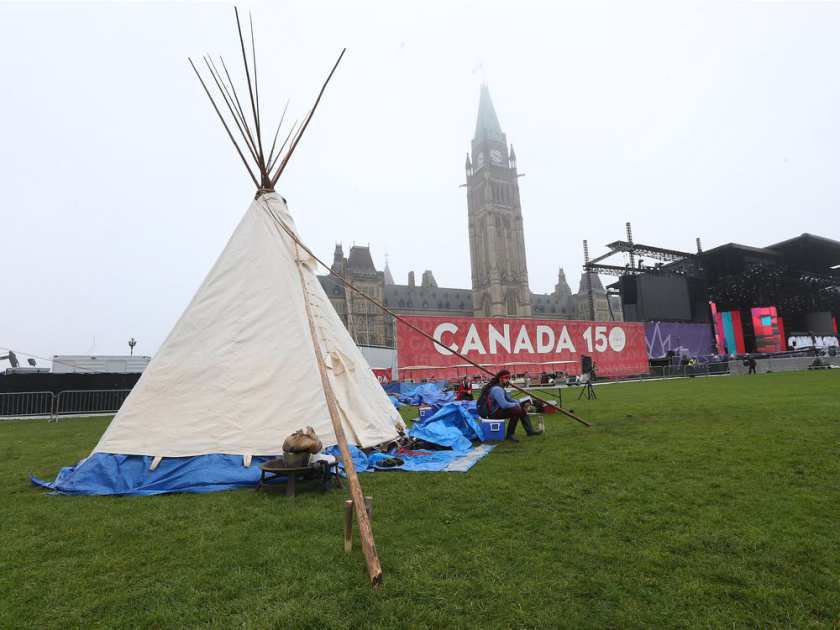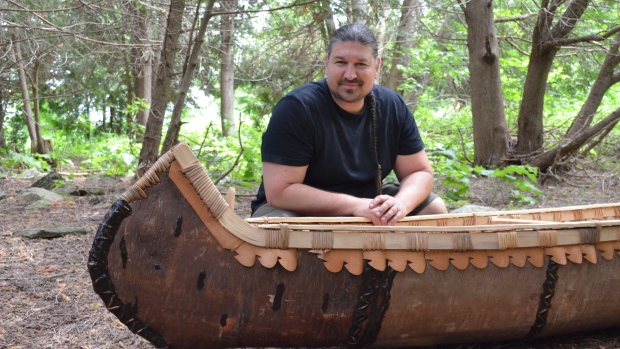 One morning, a few weeks ago, I was standing on a bus weaving its way into the center of Belfast, Northern Ireland. It was crowded with people making their to work, or school or various tourist attractions. When I offered my seat to someone, a woman sitting nearby asked what part of Canada I was from. When I told her “Nova Scotia”, her friend said, “Ach, sure, you guessed right. My ma always said when in doubt always assume they’re Canadian, that way you won’t insult anyone.” I have to tell you I was surprised by the smug satisfaction that came almost immediately to mind – she hadn’t mistaken me for an American! (my apologies to those present among us) Frankly, I was relieved that I didn’t have to correct anyone or explain anything about what’s been happening south of our border. And yet, while I am extremely proud of our Canadian Charter of Rights and Freedoms, of our welcome mat open to the world, of our cultural mosaic and of our official bilingualism, the smugness has waned somewhat. In the lead up to this 150th anniversary of Confederation, I’ve been increasingly un-settled, wondering what exactly it is that we are celebrating.
One morning, a few weeks ago, I was standing on a bus weaving its way into the center of Belfast, Northern Ireland. It was crowded with people making their to work, or school or various tourist attractions. When I offered my seat to someone, a woman sitting nearby asked what part of Canada I was from. When I told her “Nova Scotia”, her friend said, “Ach, sure, you guessed right. My ma always said when in doubt always assume they’re Canadian, that way you won’t insult anyone.” I have to tell you I was surprised by the smug satisfaction that came almost immediately to mind – she hadn’t mistaken me for an American! (my apologies to those present among us) Frankly, I was relieved that I didn’t have to correct anyone or explain anything about what’s been happening south of our border. And yet, while I am extremely proud of our Canadian Charter of Rights and Freedoms, of our welcome mat open to the world, of our cultural mosaic and of our official bilingualism, the smugness has waned somewhat. In the lead up to this 150th anniversary of Confederation, I’ve been increasingly un-settled, wondering what exactly it is that we are celebrating.
Just as it is easy to find fault with others, it is equally easy to begin to think more highly of ourselves than we ought. Yes, we’ve come a long way but there is yet a longer way to go. And Jesus calls us to that longer way, to that greater love, to that laying down of our lives if necessary, to that kinship so necessary to the Kingdom.
 A drama has been unfolding on Parliament Hill this past week. Early Thursday morning, in a bold move described as a re-occupation of the land, a grassroots Indigenous group erected a teepee as a symbol of the unresolved grievances of many Indigenous people who say they have little reason to celebrate the country’s history of colonialization, land dispossession, Indian residential schools and forced assimilation. After an initial confrontation with the RCMP, the ceremonial teepee was moved from the edge of the Hill to a more central location, near the Peace Tower, where it will remain throughout the festivities this weekend. A spokesperson for the group said “It’s like a miracle happened for us. It’s a road for us to go forward in all the things that happened to our people. That’s what it represents. That door is open now and we came through. We’re being acknowledged.”
A drama has been unfolding on Parliament Hill this past week. Early Thursday morning, in a bold move described as a re-occupation of the land, a grassroots Indigenous group erected a teepee as a symbol of the unresolved grievances of many Indigenous people who say they have little reason to celebrate the country’s history of colonialization, land dispossession, Indian residential schools and forced assimilation. After an initial confrontation with the RCMP, the ceremonial teepee was moved from the edge of the Hill to a more central location, near the Peace Tower, where it will remain throughout the festivities this weekend. A spokesperson for the group said “It’s like a miracle happened for us. It’s a road for us to go forward in all the things that happened to our people. That’s what it represents. That door is open now and we came through. We’re being acknowledged.”
Later on Thursday, Prime Minister Justin Trudeau said “We recognize that over the past decades, generations, and indeed centuries, Canada has failed Indigenous peoples. We have not built the kind of present, the kind of future for first peoples, for First Nations, for Inuit, for Métis people across this country. We need to be doing a much better job of hearing their stories and building a partnership for the future.”
Yesterday afternoon Justin Trudeau visited with those gathered — meeting privately with them inside the teepee. The activists later acknowledged that while there was not a lot that he could promise outright, his visit symbolized his publicly stated commitment to move forward with national reconciliation efforts by meeting and really listening to people. An activist present at the meeting said his visit “Recognize[s] me as a human being, because that is the fundamental problem, a crisis situation that we’re facing here on Turtle Island, that the settlers don’t view us as human beings. What you take for granted, we’re still fighting for that right.”
Her reference to “settlers” unsettles me. My family tree – and perhaps yours as well – is complicated, with its own mosaic qualities. I’m the daughter of a first generation Irish immigrant and a 5th generation re-settled Huguenot. There is rumour of a Metis connection to the Riel Rebellion there too. My discomfort stems largely from the realization of how little I know about our collective history. I was raised on – and loved – the romanticized stories of the voyageurs and their ceinture fléchée, running portages through the woods, carrying worldly goods from one body of water to another. And while I’m still attempting to fit those fragments into the bigger picture, I acknowledge the places I’ve yet to portage.
I came across a story this week that may help: Christian Pilon is Métis. Working with an elder, Christian  has learned to build birch bark canoes and uses this organic craft to share culture with others. Of the canoe he says, “the outer layer, the skin, white birch bark; because the skin is waterproof, just like our skin. The inner layer is cedar. And to tie everything together, we use spruce roots. Spruce roots are your tendons. That’s what ties all your muscles and your bones together. So this canoe is made in the traditional way. There’s no power tools being used, everything is hand tools. So, no glue, no screws, no nails, no ropes, everything is found in nature. For most people the canoe just looks like a fun ride – and that it is, definitely! But historically speaking, these canoes are what allowed most Canadians to travel into the interior of Canada. But it’s bigger than that. The canoes? This is relationship, relationship building. Our families traveled in this. This is a gift that Canada received from my Anishinaabe ancestors towards my French, European ancestors. We used to travel together in this canoe a long, long time ago. We shared that gift with the understanding that we would paddle together in that canoe and share water, resources and land, and along the way we kinda split up. And sadly we’ve had a rough last 150 years. But, regardless, we are still in this canoe. The paddle is out front, we’re still waiting for Canada to come back into this canoe and share this beautiful craft.”
has learned to build birch bark canoes and uses this organic craft to share culture with others. Of the canoe he says, “the outer layer, the skin, white birch bark; because the skin is waterproof, just like our skin. The inner layer is cedar. And to tie everything together, we use spruce roots. Spruce roots are your tendons. That’s what ties all your muscles and your bones together. So this canoe is made in the traditional way. There’s no power tools being used, everything is hand tools. So, no glue, no screws, no nails, no ropes, everything is found in nature. For most people the canoe just looks like a fun ride – and that it is, definitely! But historically speaking, these canoes are what allowed most Canadians to travel into the interior of Canada. But it’s bigger than that. The canoes? This is relationship, relationship building. Our families traveled in this. This is a gift that Canada received from my Anishinaabe ancestors towards my French, European ancestors. We used to travel together in this canoe a long, long time ago. We shared that gift with the understanding that we would paddle together in that canoe and share water, resources and land, and along the way we kinda split up. And sadly we’ve had a rough last 150 years. But, regardless, we are still in this canoe. The paddle is out front, we’re still waiting for Canada to come back into this canoe and share this beautiful craft.”
As a man of mixed ancestry, Pilon views the canoe as a metaphor for building relationships, and thinks of it as a powerful symbol for Canada going forward.
St. Paul calls the Colossians to clothe themselves with compassion, kindness, humility, meekness, and patience; to bear with one another and, if anyone has a complaint against another, to forgive each other; just as we have been forgiven. He also admonishes them to clothe themselves with love, which binds everything together in perfect harmony. Jesus calls us to that place of portage where we carry one another.
Human relationships are not perfect; in fact they can be downright messy. There is no “perfect union”. Yet Jesus continues to call us onward. Mosaics are made with broken pieces, fit together, shaped by the overall vision of the artist. We are indeed still in this canoe we call Canada.
May the peace of Christ rule in our hearts, to which indeed we are called in the one body.
Readings: Isaiah 32:1-5, 16-18 Psalm 85:7-13 Colossians 3:12-17 John 15: 12-17
By the Rev. Frances Drolet-Smith, Oblate SSJD
Link to video and article about Christian Pilon http://cbc.ca/1.4176938


